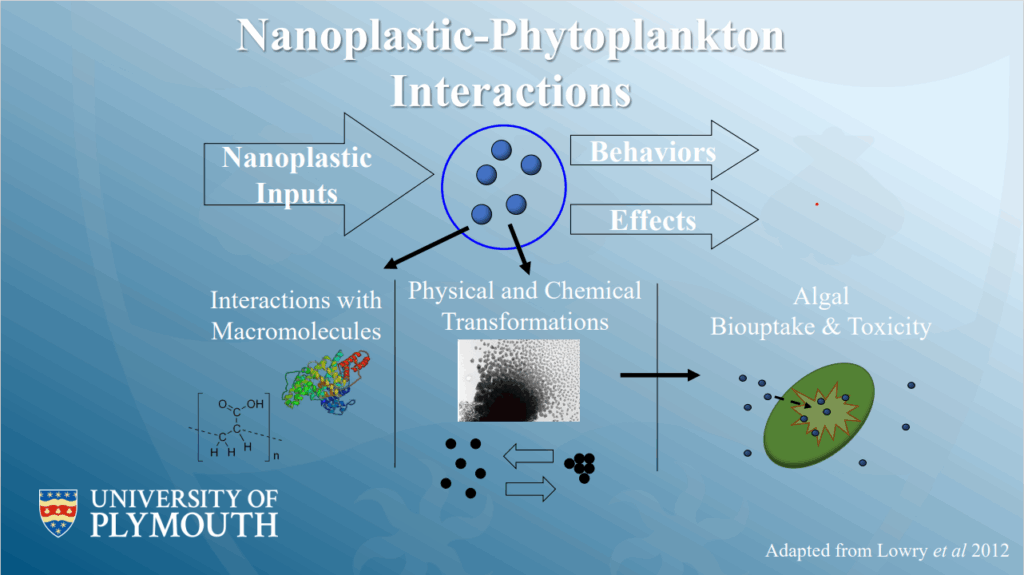Project Description
Supervisors
Dr Craig Dedman-Jones, School of Geography, Earth & Environmental Sciences (SoGEES), University of Plymouth
Professor Jamie Lead, School of Geography, Earth & Environmental Sciences (SoGEES), University of Plymouth
Dr Adam Lewis, Centre for Environment Fisheries and Aquaculture Science (Cefas)
Dr Andrew Turner, Centre for Environment Fisheries and Aquaculture Science (Cefas)
Scientific Background
Our seas have absorbed ~90% of the heat accumulated on Earth in the past 50 years. Consequently, sea surface temperatures and the frequency of marine heatwaves are increasing rapidly. Meanwhile, millions of tons of plastics enter the marine environment every year. Continual fragmentation has led to the occurrence of nano-scale plastic particles (nanoplastics; 1-1000 nm) which represent the majority of plastic in the ocean. The impact of nanoplastics on marine life and ecosystem function requires attention to understand the risk of these abundant pollutants in the context of other co-occurring environmental stressors. The influence of ocean warming on the biouptake of nanoplastics will be explored under simulated natural conditions in the laboratory. Marine phytoplankton, which act as the base of the marine food web and contribute to major global biogeochemical cycles, will be used as a model to understand bioaccumulation of nanoplastics and any impact of exposure on oceanic carbon cycling in the future warmed ocean.

Research Methodology
Palladium (Pd)-doped plastic nanoparticles (Pd NPPs) will be synthesised and characterized using a multi-method approach. Laboratory exposures with Pd NPPs will be conducted on model marine phytoplankton species under various ocean warming scenarios. Single cell- and single particle- inductively coupled plasma-mass spectrometry (SC-ICP-MS) will be used to track biouptake as affected by temperature. Proteomic analysis will be used examine mechanisms of NPP toxicity towards phytoplankton.
Training
The PGR will receive training in nanoparticle synthesis and characterisation. Experience will be gained in collecting and analysing mass spectrometry data using state-of-the-art approaches. Training will be provided in algal culturing and physiological monitoring, as well as in molecular biology. Through the ARIES DTP and access to the University of Plymouth Researcher Development Programme, the PGR will acquire a range of professional and transferable skills. The PGR will meet with the supervisory team regularly throughout the project to receive guidance and support.
Person Specification
We seek an enthusiastic and motivated individual with interests in nanotechnology and/or marine biology. Prior experience in materials characterisation or algal culturing techniques would be beneficial. Experience in mass spectrometry would be desirable.
Acceptable first degree subjects: Chemistry, Marine Biology, Biology, Environmental Science
Project code: DEDMAN-JONES_PLYM_ARIES26_CASE
All ARIES CASE studentships include a three to 18-month placement with the non-academic CASE partner during their period of study. The placement offers experience designed to enhance professional development.
